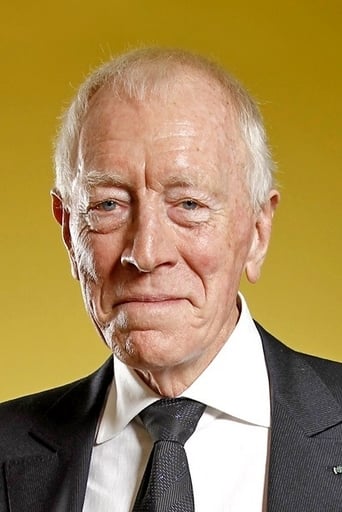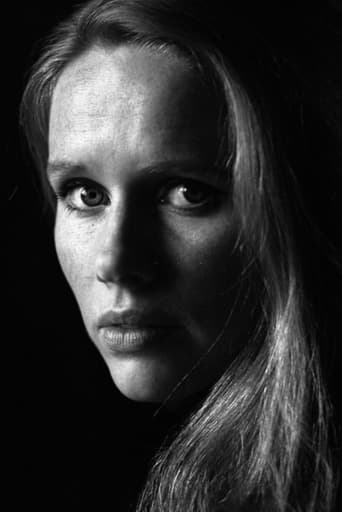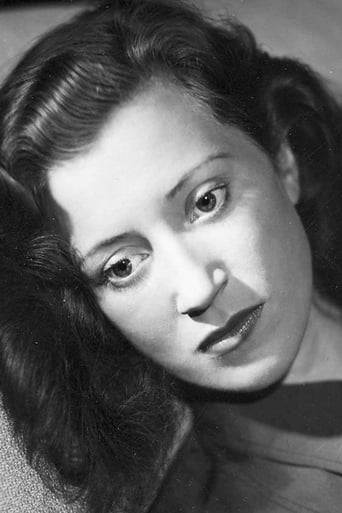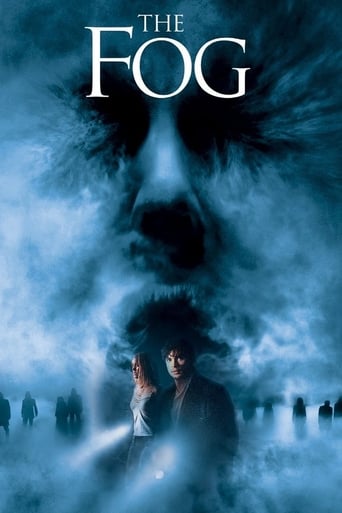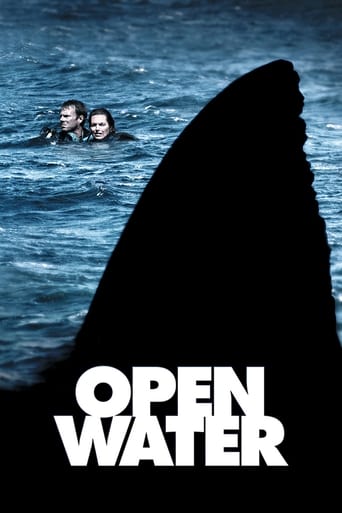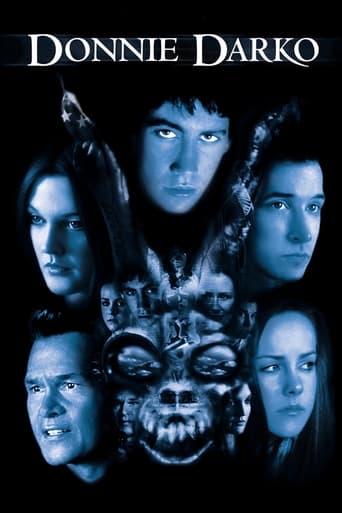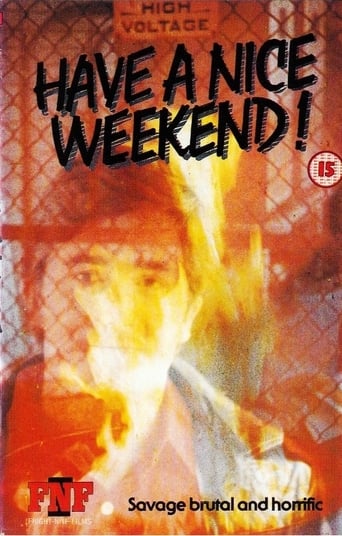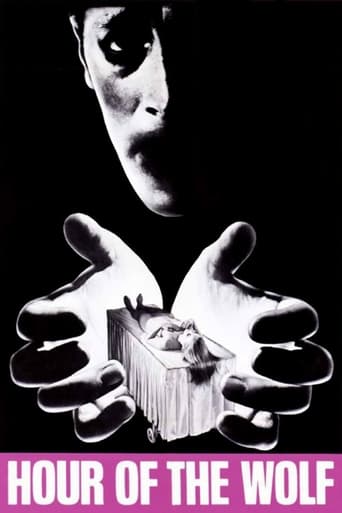
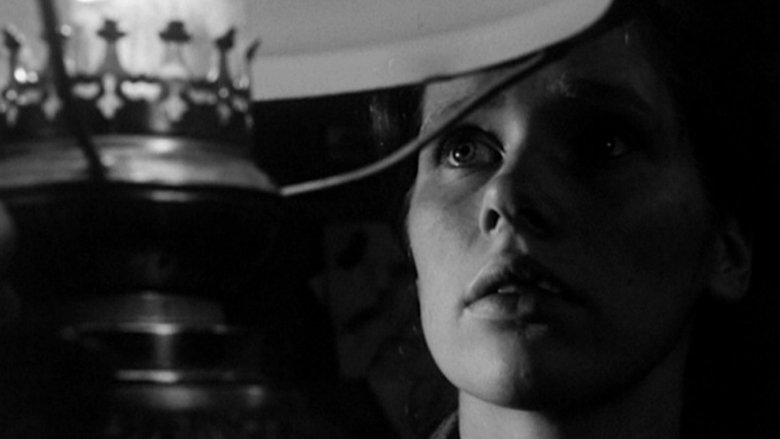
Hour of the Wolf (1968)
While vacationing on a remote German island with his pregnant wife, an artist has an emotional breakdown while confronting his repressed desires.
Watch Trailer
Cast


Similar titles
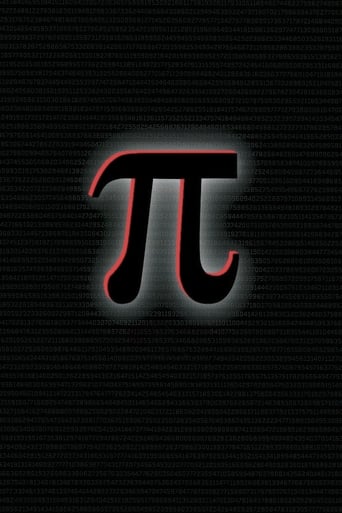
Reviews
"The Hour of the Wolf" refers to that particular moment between night and day where sleep is at its deepest, where most dreams -consequently nightmares- gets the realest feeling, where most people die and are born, where we're at the most fragile and vulnerable state. In the end, it is such a fascinating accumulation of superlatives of creepy undertones, it would've been impossible for an explorer of the human condition like Ingmar Bergman not to tackle it.And to illustrate the eeriness of the titular notion, Bergman translates it into a mysterious pathology that took possession of a tortured artist's soul; a painter named Johan Borg and played by Max Von Sydow. The film is based on the fictional notes taken before his death (or disappearance?) and revealed in front of the camera by his widow (?) Alma, played by Liv Ullman. The two actors star again in a Bergmanian film in the same year than "Shame", Bergman's anti-war pamphlet but this is one more obscure and puzzling film, even by Bergman's standards.In fact, the film made me realize that despite the heavy psychological material carried by most Bergman movies, they were pretty much straight-forward about their subject and at the end, it was always a part of our human condition that revealed to us, mirrored by our relationship with time, with God, with the others. It's like each Bergman's movie played like a piece of puzzle that would constitute a magnificent and intelligent study of the human soul. But "The Hour of the Wolf" is one of these pieces of the puzzle you don't know where to put.This is not to separate the film from Bergman's other works, it's his first and –I guess- only take on supernatural and surrealistic material, and the result is aesthetically nightmarish and conveys well the horror inhabiting Johan's soul, but Bergman, as inaccessible as he is, always found a way to guide us to his characters, even at the price of a second viewing. I wanted to understand what was going into Johan's mind, was that sickness? Hallucinations? In a way, Alma mirrors these very feelings and like her, we want to know more about him.Some shadows of answers come when she sneaks into his diary, the reading episodes provide the first hints: one creepy dream involving a kid trying to kill him and an idyll with a girl named Vogler and played by Ingrid Thullin. Shot in high contrast and with a pretty furious editing, the kid's killing and drowning is one of the most disturbing sequences I've ever seen, my guess is that it supposed to evoke the repression of some childhood episodes, and maybe the child Johan kills is himself, the clue comes from his revelation of a childhood trauma later to Alma.The Vogler episode is echoed during a dinner where the couple meets a group of rich and eccentric slobs to the limits of perversity bourgeois (lead by Erland Josephson). They all seem to know about Johans' affair. They're obnoxious, uneducated, aggressive, one of the lady literally jumps at Johans, Josephson's wife implies that they try to take him from his wife, they're the closest players to the antagonists, and leave us a sentiment of total discomfort, like these creepy nightmares where we don't know where we are but can't wait to get the hell out.I guess "The Hour of the Wolf" encapsulates this feeling of continuous entrapment and impossibility to escape from a situation without getting through it, it's probably these repressed feelings that come back to the surface to better torture us. Maybe it's a surrealistic definition of guilt, guilt from one man's weakness. Which might explain that Johan decided to isolate himself from the world in the remote house leaving a peaceful and dull life with Alma, while he's lived quite a torturous and much more cinematically appealing life? And maybe the third act is the price he finally paid by not being totally sincere with his wife. It's made of a whole long sequence where they search Max in the forest, while he's in the castle and must play some twisted and pervert games, nudity, make-up, crows, all the most unsettling archetypes of nightmares are used and at the end, nothing but absence, absence of Max, of explanations "The Hour of the Wolf" leaves many interrogations, and so does the film. Right now, I'm still having this 'what the hell did I see?' expression I had when it ended.I certainly wouldn't be a fan of Bergman if I had seen this first, but because I'm a fan, I try to see the film with more magnanimous eyes. I can accept the absence of definite answers and the way Bergman drowns his work into his own creativity, my take is that Bergman invites us to embrace these moments where we're directly haunted by our own demons, where we must face the true facet of our personality, when the nightmare gets its realest feeling, perhaps the closest moment in life is when it looks like a nightmare."The Hour of the Wolf" is certainly the closest Bergman's film to a nightmare and I wonder if the deliberate noises he made at the beginning of the film were made to reassure us that we were only watching a film, as to insist that no matter how creepy this stuff is, it's still the product of one's imagination. I guess I prefer Bergman when he approaches our reality, but even the way we handle our reality is conditioned by our subconscious, and all the feelings we try to repress. Maybe this is "The Hour of the Wolf", this moment where for some reason; we have good reasons to act irrational.But I certainly wouldn't recommend it as a first Bergman's film.
Liv relates story of her life with Max through flashbacks. Max, a disturbed artist, relates profound stories through flashbacks within flashbacks, or they may just be nightmares or hallucinations, or Bergman may have spliced in footage from the wrong film. The couple goes to a party but are too depressed to have a good time. They don't sleep for weeks but try to bore each other to sleep through dull stories and philosophical rants. Strange characters randomly pop in and out, including a boy who bites, a man who walks up walls, and a woman who removes her face and soaks her eyeballs in water. Any coherence in the narrative is purely unintentional on Bergman's part.
¨Hour of the wolf¨ is a spellbinding masterpiece by the genius Ingmar Bergman with brilliant acting by a Swedish all-star-cast . A disturbing artist named Johan Borg (Max Von Sidow) in crisis is haunted by nightmares from the past , which takes place on a thunderous , windy island in Sweden . It occurs during "the hour of the wolf" - between midnight and dawn - . It is the hour when most people die . It is the hour when the sleepless are haunted by their deepest fear, when ghosts and demons are most powerful. It is also the hour when most children are born . Johan tells his wife Alma Borg (Liv Ullman) about his most painful records . Strange hallucination create the artist's world , as he sees apparitions shaping a tormented vision of dreams and anxieties that seem at times utterly out of control .This Swedish movie displays haunting and powerful scenes , it's plenty of bizarre images which stay forever in the mind . Interesting , claustrophobic and surrealist film about an artist retreated to deserted island , being splendidly performed by Max Von Sidow , in Ingmar Bergman's only horror film . Weird , rare look into the personality of a depressed artist who suffers amazing nightmares . Although sometimes is slow moving , however the thoughtful and eerie screenplay is narrated with intelligence and coldness but are developed strange and moral issues as anxieties , painful memories and guiltiness . Ingmar Bergman originally penned the script in 1964 under the title "The Cannibals" . A serious bout of pneumonia led him to reconsider the project whilst lying in hospital; he deemed it to be potentially too expensive in concept and execution . Bergman revised the script idea into a more low budget piece to accompany Persona . The movie realizes an excellent Sweden reunion actors with usual Bergman's players as Max Von Sidow , Liv Ullman , Ingrid Thulin and special mention to Erland Josephson as Baron Von Merkens , showing perfectly the different characters and exploring their apprehensions , ambitions , fears and circumstances . Glimmer and riveting cinematography in white and black by Sven Nykvist plenty of lights and shades (won an Oscar for Fanny and Alexander) , he's deemed by many to be one of the world's greatest cameraman , he achieved to give the movies on the most natural and simplest look imaginable , he replaced to Gunner Fischer (The seventh seal) as Bergman's cinematographer . He continued an American career working for Louis Malle (Pretty baby) , Bob Fosse (Star 80) , Philip Kaufman (The unbearable lightness of being) and Woody Allen (Another woman , Crimen and misdemeanors) . ¨Hour of the Wolf¨ or "Vargtimmen" is wonderfully directed by Bergman , it's a real masterpiece who made his major impact gaining international acclaim . His realization was during an impressive golden period from 1957-1968 when Bergman made stunning masterpieces : The seventh seal , Persona , The communicants , The silence , Virgin spring . Rating : Magnificent , it is considered by many (along with The seventh seal) to be Bergman's one of the best and probably the closest Ingmar has ever come to creating a terror movie . This surreal , nightmarish film will appeal to Ingmar Berman and Max Von Sidow enthusiasts .
Hour of the Wolf is an intriguing horror film, difficult to comprehend, complex in the best possible way, and exceptionally creepy and deep. It tells the story of a painter who confides in his pregnant wife that he believes that the people he encounters are demons of all different sorts. He has a chillingly persistent case of insomnia, and stays awake all hours of the night with his wife, especially during the "vargtimmen," also known as "the hour of the wolf," where, he states, is when the most births and deaths occur.Johan Borg (Max von Sydow) is the painter, and his wife is Alma (Liv Ullmann). The movie follows them sort of sympathetically, as we get a brutally horrifying narrative on how the thought of demons have almost corrupted Johan as a whole, and the sad fact that he may even have a difficult time functioning on his own. He seems to always need some careful, human support.Ingmar Bergman, a director known for his aesthetically deep pictures, such as his involving character studies, and intellectually challenging portrayal of life, dabs into the horror genre for the first (and maybe only) time with beautifully suspenseful material. This is a surrealist fantasy, equipped with a marvelous performance by von Sydow, a Bergman regular, who was one of the sources to The Seventh Seal's greatness.The character I felt the most sympathy for was not Johan, but Alma, who is forced to watch her husband be eaten alive by his own fear and insanity. This is the second Bergman film that has intimately covered, what one expert calls, "personality disintegration." In Wild Strawberries, we saw how one man's shallowness and pompous attitude, which refused long time friends and relatives access to his mind, lead him down the road of an unhappy, unfulfilled lifestyle he begins to loathe at the end of his life. However, he was more in control of his life than Johan, who seems to fighting a battle that simply doesn't want to lose here.Bergman's Gothic horror film is elegantly shot and eerily photographed, with long shots of bleak landscapes and intimate closeups in the dead of night. Hour of the Wolf is infinitely smarter and more appealing than much of the horror films we are met with today, and it deserves to be seen more than one of those cheap, low budget monster films that rerun week after week on Svengoolie.Starring: Max von Sydow, Liv Ullmann, and Gertrud Fridh. Directed by: Ingmar Bergman.


